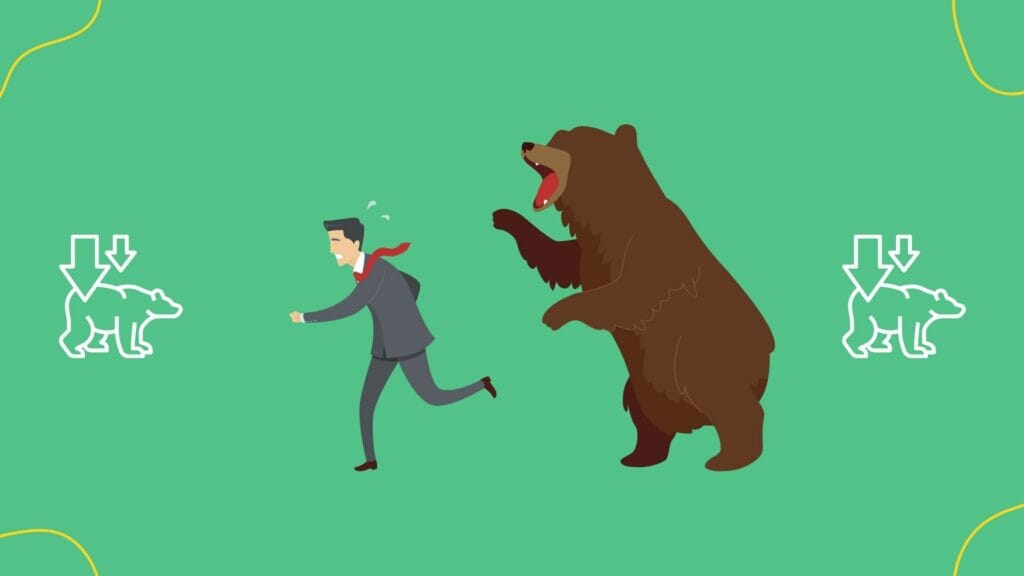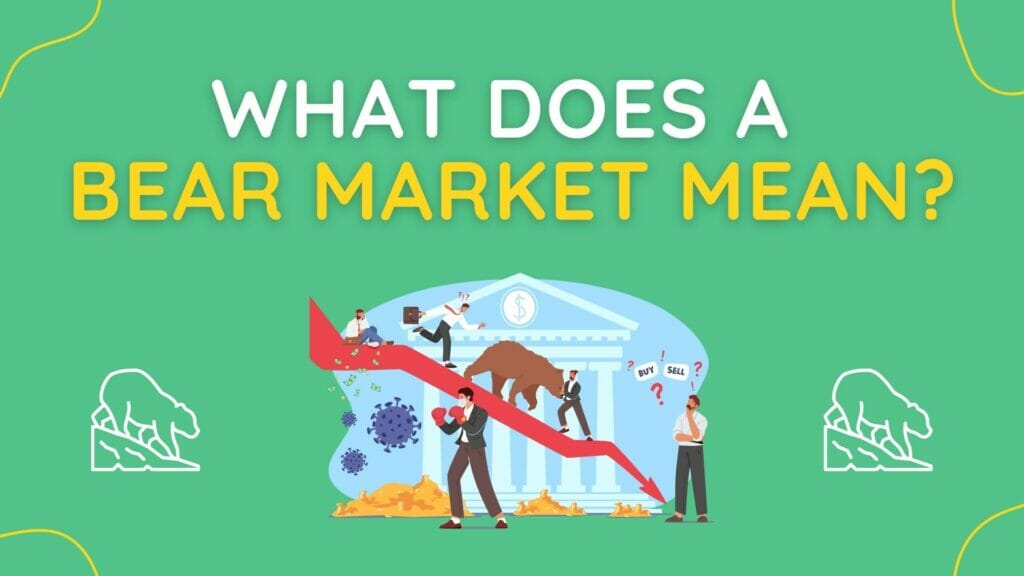You may have heard it on the news or even online, but as of 2022, we’re officially in a bear market. But what does a bear market mean, and why is it impactful to me?
Experienced investors have seen a few bear markets, but studies have found this is when most of their money is made. Why is that? The old sayings. Buy low, sell high, or the market has to come down to go back up.
We dig into ‘what does a bear market mean’ and some more expansive thoughts, strategies and history to help you manage your investments.
So, What does a bear market mean?
A bear market occurs when the price of indices and stocks drops for a prolonged period. Once the market, sector or stock has fallen 20% or more, this is officially considered a bear market.
Usually, investors will look at the S&P500 (an index with the 500 largest US companies) for whether the overall market is in or heading towards a bear market.
The term can also be used for individual holdings. For example, if Amazon’s stock fell by 20%, then Amazon is technically in a bear market.
A bear market is not to be confused with a correction; a correction is a drop of 10% or more but is upgraded to a bear market once it hits the 20% threshold.
What causes a bear market
Many factors can cause a bear market. Examples on record are global pandemics, world wars, irresponsible banks, oil price movements, political scandals and weather disasters.
There are also times of fear which cause markets to drop, and this could be an impending nuclear threat, China invading Taiwan or something which spooks investors into selling.
Honestly, there are so many ways the markets can decide to sell off, and bear markets are a regular occurrence. It’s part and parcel of being an investor and often where the opportunities lie.

What was the longest bear market in history?
I’m sure you’ve heard of the great depression. We experienced the worst bear market on record just before that happened, where the Dow dropped 30.8%. This is where the term Black Monday comes from.
The longest bear market in history was actually between 1973-74 and lasted 630, which was around 21 months in total. This is very interesting because if our current bear market lasts this long, it won’t be until early 2024 until we come out of it!
The shortest bear market on record was the one we experienced in 2020 after the announcement of lockdowns across the globe. Seeking Alpha, a popular investing community, conducted research and calculated that the 2020 bear market last just 33 days.
"Be fearful when others are greedy and be greedy when others are fearful"
Warren Buffett Tweet
How often do bear markets occur?
According to the S&P indices, a market has occurred, on average, every 56 months since 1932. This equates to every four or so years.
As discussed above, they are all different in length and depth, but a bull run usually follows it, which is what we all want to see as investors!
Sometimes investors welcome bear markets to cash in on specific opportunities, but more on this below.
Generally, it’s said that stock loses around 35-36% on average in a bull market before climbing back up to a new all-time high.
What are the most recent bear markets?
- 2000 – The .com bubble
- 2008 – The financial crisis
- 2018 – The trade War (this was a short one)
- 2020 – Inflation / Ukraine war
How to know when a bear market ends?
The only real way to know when a bear market ends is when the trend has gone back up. Many look into more technical indicators to find the exact bottom, but really it’s just a prolonged rise out of the trend lines.
What you want to see is the charts break what’s called the 50-day and 200-average, which is the average price of the stocks over that period of time. Once this happens and continues over several days or weeks, you can safely say the bear market is over.
Investor sentiment is also a factor, and when the market does finally turn around, investors are less scared of future events. Once this occurs, investors start putting their cash positions back into the market, causing the prices to rise.
There are, however, what is called bear rallies. This is when the markets shoot right up in a short space of time but are followed by even more dramatic drops. This can be difficult to navigate as they often look like the bottom but are just a small rally.
Is it good to buy in a bear market?
A bear market can be a difficult time to invest your money as volatility is high and markets are dropping. That being said, the stock market is designed to go up over time as companies grow and economies get larger.
If you manage the buy-in at the bottom, you could make enormous gains as the market tracks its way back to all-time highs. It is, however, virtually impossible to call the bottom, but if you are employing a monthly investment strategy called dollar-cost averaging, you’ll be buying at discounts throughout.
Dollar-cost averaging means buying with the same amount at the same time each month, no matter how high or low the markets are. Over time you benefit from an average price point from both bear and bull markets.
"Bear markets make a lot of people money, they just don't know it at the time"
Shelby Davis Tweet
What is a bear investor?
A bear investor constantly looks for signs and patterns that the market will drop. Once they feel we’re there, they will place bets against the market in option trades or puts, as they’re also known.
These investors go against the market, and this trading style can be hugely profitable if executed correctly. It’s important to know what you’re doing before you bet against the markets because, as we know, the stock market is designed to go up!
We hope you’ve picked up ‘what is a bear market’ but if you have any questions, feel free to reach out in the comments below, and we’ll do our best to answer them.
Share this article with friends
Disclaimer: Content on this page is for informational purposes and does not constitute financial advice. Always do your own research before making a financially related decision.


